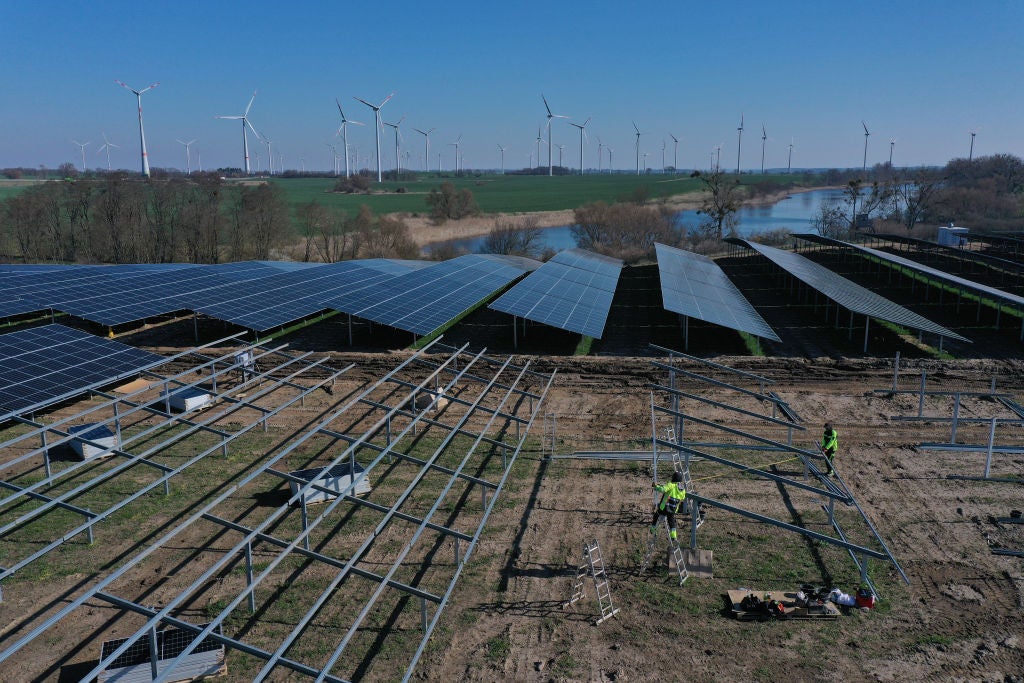
Energy think tank Ember said on Thursday (26 September) that Germany could save millions in fuel costs with more energy storage capacity.
According to Ember, Germany could have avoided nearly €2.5m in natural gas imports in June this year alone if it had 2GW more battery storage – a 20% increase from current levels – in its energy system. The additional battery capacity could have shifted midday solar power to the evening, displacing 36 gigawatt-hours (GWh) of fossil fuel power.
Energy storage technologies capture electricity generated from intermittent energy sources such as solar and wind at times of high generation to be used for when supply is low.
The think tank stressed that the rollout of energy storage must match the rapid growth of electricity generated from solar and wind technologies in Germany and the EU.
Solar has the largest percentage share of installed capacity in Germany’s electricity system as of 2023 at 33.24%, while wind constitutes the third-largest share with 28.12%, according to Power Technology’s parent company GlobalData.
Whilst the increased deployment of renewable energy in Germany has decreased its reliance on Russian imports, a lack of energy storage and grid improvements has prevented the country from unlocking renewables’ full benefits.
In December, Germany put energy storage in its political agenda for the first time, detailing a policy framework through which it hopes to reach a deployed storage capacity of 5GW/57GWh by 2030 and 60GW/271GWh by 2050.
The country currently has 1.8GW of energy storage and is forecasted to deploy an additional 3.7GW by 2027. To further stabilise its grids, the country set out a plan to develop new hydrogen-ready gas-to-power plants and has been discussing an accompanying capacity to guarantee incomes.



